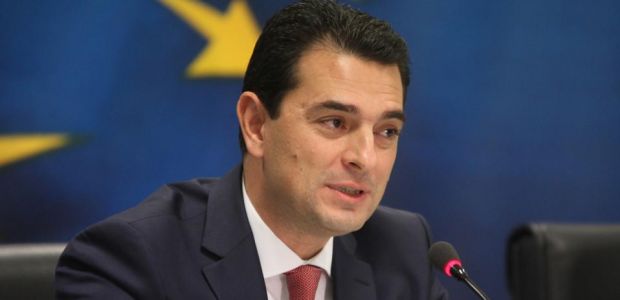Kostas Skrekas, just appointed new energy minister as part of the government’s cabinet reshuffle, in place of Costis Hatzidakis, who has headed the ministry for a constructive year and a half, faces a series of pending energy-sector matters that remained unresolved in 2020. They need to be addressed as soon as possible. Developments and conditions this year will be pivotal for these matters.
Skrekas was previously deputy minister for agricultural development and food.
Also in 2021, a year during which takeovers and mergers are seen occurring in the retail electricity and gas markets, rivals will continue battling for market share gains. The target model’s launch two months ago has brought about new conditions, strengthening the positions of vertically integrated suppliers.
The need for a normalization of the target model’s new markets stands as the energy ministry’s most pressing task at present. A sharp rise in wholesale electricity prices as a result of soaring balancing market costs has deeply unsettled the market, impacting the standings of non-vertically integrated suppliers, as well as industrial enterprises and consumers, who face rising bills.
Market coupling with Bulgaria’s day-ahead market, scheduled to take place within the first three months of the new year, is the next step of the target model, a procedure designed to harmonize EU energy markets and promote competition.
New energy-intensive industrial tariffs also need to be set soon. Though essentially a matter concerning state-controlled power utility PPC and Greece’s industrial players, the cost of industrial energy is crucial for Greek industry, carrying particular political and economic weight.
Also, Greece has little time left in its negotiations with Brussels for a framework to offer third parties access to PPC’s lignite-based generation. This issue is no longer as crucial as it once was because the country’s lignite output has been drastically reduced. Even so, it remains important for independent suppliers.
A number of energy-sector privatizations could be completed this year. Gas utility DEPA’s two new entities, DEPA Infrastructure and DEPA Commercial, electricity distribution network operator DEDDIE/HEDNO, and a tender for a tender for the development of an underground natural gas storage facility (UGS) in the almost depleted natural gas field of “South Kavala” in northern Greece are all on this year’s privatization list.
In renewable energy, the ministry needs to take decisions within the first few months to clarify terms regulating the sector. RES investment interest is currently high. Steps still need to be taken in an ongoing effort to simplify RES licensing procedures, while a legal framework must be established for energy storage, offshore wind farms and hydrogen use.





